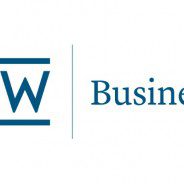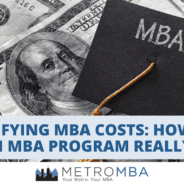Search results for return on investment:
Top Student Trading Competition Returns to Rotman School
For the 14th consecutive year, the University of Toronto’s Rotman School of Management will host one of the world’s top student trading competitions. The Rotman International Trading Competition (RITC) is an annual event that draws students and faculty from 52 universities worldwide—countries represented include China, Iceland, India and South Africa—for a three-day simulated market challenge. Continue reading…
Former Reserve Bank of India Governor Raghuram Rajan Returns to Booth
Welcome back to Chicago, Raghuram Rajan. Following a three year stint as India’s top central banker, he returned to the University of Chicago Booth School of Business as the Katherine Dusak Miller Distinguished Service Professor of Finance. Continue reading…
Top MBA Recruiters: Two Sigma Investments
Two Sigma may sound like a secret government program or an evil super villain organization, but it’s actually one of the largest privately owned hedge fund sponsors in the world today. Two Sigma Investments, LP—formerly known as Two Sigma Investments, LLC—was founded in 2001 and is based in New York City, but also has major branches in the Houston, London, and Hong Kong Metros as well.
Continue reading…
Student Investors at UNT Win Big in Virtual Investment Competition
A team of student investors from the University of North Texas College of Business claimed second place this year in the TD Ameritrade’s thinkorswim Challenge, taking the prize over 450 collegiate teams.
Terry College’s Student Managed Investment Fund Now Worth More Than $1 Million
The Student Managed Investment Fund at University of Georgia’s Terry College of Business recently received a significant boost in funding thanks to a $750,000 investment from the UGA Foundation’s investment committee.
Hofstra Students Place Second at Investment Competition
A group of Hofstra University students took second place at this year’s Adirondack Cup stock picking challenge. The Challenge is a six-month contest sponsored by a boutique mutual fund company that was co-founded by an alumnus from the Zarb School of Business. For the challenge, students from 18 different colleges and universities in the Northeast, managed a hypothetical stock portfolio valued at $1 million. The goal of the competition is to give students the opportunity to test investment ideas and management concepts for portfolios.
Adirondack Research & Management Inc. sponsors the competition. Adirondack Research & Management Inc. is the Advisor to The Adirondack Small Cap Fund (ADKSX), an SEC registered no-load mutual fund established in 2005. During the competition, the Hofstra team posted a 35.38 percent return during the competition.
Former Students Return to Foggy Bottom for GWSB Alumni Weekend
George Washington School of Business Alumni gathered campus for Alumni Weekend 2014– a weekend was filled with numerous opportunities to reconnect with classmates, faculty, and staff through social events, networking programs, life-long learning sessions, and more. Continue reading…
Marshall Students Take First Place in Chicago Investment Challenge
A team of undergraduates from the USC Marshall School of Business took first place in the national Chicago Quantitative Alliance (CQA) Investment Challenge on May 2. Joseph Bailey ’14, Simeon Lee ’14 and Dikshant Tahilramani ’14 and Daxiang Tian ’14 represented USC Marshall and competed against 23 top-ranked schools, including Carnegie Mellon, University of Chicago, Dartmouth, UCLA, University of Michigan and Vanderbilt.
The CQA Investment Challenge is an equity portfolio management competition. The student investment teams were guided by faculty advisers and mentored by investment professionals.
The teams created and managed a virtual hedge fund over five months, starting in November 2013. The students would be simulating the duties of fund managers. The goal was to generate superior risk-adjusted returns with a long-short equity investment strategy. Continue reading…
Demystifying MBA Costs: How Much Does an MBA Program Really Cost?
Are you considering pursuing an MBA but concerned about the financial commitment it entails? The cost of an MBA program is a crucial factor to consider, and in this article, we’ll provide you with a comprehensive breakdown of MBA costs, including tuition, fees, and potential hidden expenses. By the end of this guide, you’ll have a clearer understanding of what to expect and how to plan for your MBA journey.
Understanding MBA Tuition
The largest chunk of your MBA expenses will be tuition fees. The cost of tuition can vary significantly depending on the school, location, and program type (full-time, part-time, online, or executive). On average, top-tier MBA programs in the United States can cost anywhere from $100,000 to $200,000 or more. However, there are also more affordable options available, including part-time and online MBA programs that can cost significantly less.
Additional Fees
In addition to tuition, MBA programs often have various fees that you should be aware of. These may include:
- Application Fees: When applying to MBA programs, you’ll typically need to pay application fees, which can range from $50 to $200 per school.
- Books and Course Materials: Don’t forget to budget for textbooks and other course materials, which can add up to a few thousand dollars over the duration of your program.
- Housing and Living Expenses: If you’re attending an on-campus program or relocating for your studies, you’ll need to factor in housing and living costs, which can vary widely based on location.
- Health Insurance: Some MBA programs require students to have health insurance, and this cost should be considered.
- Extracurricular Activities: While not mandatory, participating in clubs, conferences, and networking events may incur additional costs.
Financial Aid and Scholarships
The good news is that there are various financial aid options available to help offset MBA costs. Many universities offer scholarships, grants, and assistantships to qualified students. Additionally, federal and private student loans are options to consider, although it’s important to be mindful of the long-term financial implications.
ROI and Career Opportunities
While the upfront cost of an MBA can be significant, it’s essential to evaluate the return on investment (ROI) and long-term career opportunities it can offer. Many MBA graduates experience substantial salary increases and accelerated career growth, which can outweigh the initial expenses.
Budgeting and Planning
To manage MBA costs effectively, create a detailed budget that accounts for tuition, fees, living expenses, and any potential debt repayment. Consider your own financial situation and explore financing options such as employer sponsorship or part-time work while studying.
Conclusion
In conclusion, the cost of an MBA program varies widely, but it’s an investment in your future that can lead to substantial career benefits. By understanding the breakdown of MBA costs and planning strategically, you can make an informed decision that aligns with your career goals and financial circumstances. Remember to research individual programs, explore financial aid opportunities, and budget wisely to make the most of your MBA journey.![]()
Online MBA
Lynn University Online MBA Program Structure
Nationally ranked a top value school by U.S. News & World Report and voted ‘Best in the Region’ by the South Florida Business Journal, the Lynn University online Master of Business Administration program gives working professionals the opportunity to earn their degree from pioneers of online learning. Students of the Lynn University MBA online enjoy expertly designed, asynchronous coursework, unparalleled convenience and small class sizes, which offer frequent opportunities for close interaction and rich discussion with faculty and peers.
The program’s eleven distinct, focused specializations make for a highly-customizable program that students can tailor to their career goals with the flexibility to set their own schedule. The Lynn online MBA can be completed in as little as 1 year, which means you won’t have to wait long to reap the benefits of this IACBE-accredited program.
Curriculum at the Lynn University Online MBA Program
The curriculum of the Lynn University online MBA is designed to develop global managerial and decision-making skills, allowing graduates to become effective leaders in an increasingly multicultural and multinational environment. Students have the flexibility to fit asynchronous learning activities into their schedules, even if they work full time.
Using a general management focus and strategic approach throughout the program, students develop the knowledge and skills to succeed as leaders in the global business landscape. Some of the key program outcomes for graduates include:
- Broad and integrated knowledge of business functions.
- Knowledge of ethical and legal considerations and the social responsiveness to resolve corporate and public issues.
- Analytical, problem-solving and critical thinking skills and use of technology related to business decision-making.
- Communication and interpersonal skills to lead groups and business organizations.
- Foundations and tools to make and implement strategies.
- The depth and critical importance of the dynamic and global environment as they influence organizations, decisions and operations.
Class Profile
Average GPA: 3.1
% Female: 55%
% Male: 45%
Age Range: 22-60 years old
Average Age: 29 years old
Career Statistics
Graduates of the Lynn University online MBA program are thriving in companies including NBC Universal, Under Armor, Estee Lauder, Amazon, American Express and JP Morgan.
Tuition, Scholarships, and Financial Aid
The cost of the Lynn online MBA is $27,000 at $750/credit hour. A one-time, $200 instructional materials fee is also required to receive the required Lynn iPad (which students keep upon graduation) and no other recurring fees are required. It is encouraged to explore the possibility of employer reimbursement and other forms of aid to finance the tuition and further enhance the return on investment from the program.
Lynn University’s tuition and fees are competitive when compared to similar universities in the state of Florida. To make Lynn even more affordable, the Student Finance staff can provide a newsletter with information on obtaining the scholarships, grants and loans students can take advantage of. Finally, students who work for one of Lynn’s Education Partners may qualify for an additional tuition discount.
Admissions
A bachelor’s degree in any field is required to apply. Students must also submit the following to be considered for the MBA program:
- Application
- Resume/CV
- Personal statement (which is a writing sample demonstrating capacity to perform at the graduate level)
- Official transcripts for all college-level coursework displaying a bachelor’s degree from an accredited institution.
- One (1) letter of recommendation from an academic or professional source
- For international students who have not graduated from an accredited undergraduate institution in the United States, a satisfactory TOEFL score (550 paper-based, 213 computer-based or 80 internet-based), IELTS score (6.5 or above), or Duolingo score (105 or above) along with an International Transcript Evaluation and a course equivalency report must be provided.
No GMAT or GRE is required for this program and applicants must have achieved an undergraduate GPA of 2.5 or higher to be eligible.
Students without an undergraduate business degree are required to meet the following prerequisites for admission to the program:
- Undergraduate transcripts from MBA applicants are reviewed to determine whether the applicant has completed prerequisite course work in financial accounting, macroeconomics and statistics.
- Proficiency in the use of computer applications such as Word, Access, Excel and PowerPoint is essential.
- While not required for admission, students who have not taken a course in accounting, macroeconomics, statistics and/or who lack proficiency in the MS Office Suite (Word, PowerPoint, Excel) may be required to take one or more graduate-level foundation courses as an elective before completing the core courses in the MBA program.
Application deadlines are as follows:
There are 3 opportunities to begin the program each year. The next start date for the Lynn University online MBA is January 10, 2022. For the annual academic calendar and application deadline information, please contact an admission counselor at onlinemba@lynn.edu. Lynn recommends applying as early as possible before the start of each term to allow sufficient time for application evaluation and connecting with an Academic Advisor to register for classes.
Wisconsin Business School
History
Founded in 1900, the Wisconsin School of Business established one of the first five business programs in the nation.
Location
Grainger Hall, home of the Wisconsin School of Business, is prominently located in the heart of downtown Madison at 975 University Avenue between Park and Brooks Streets and is a brief 20-minute taxi ride from the Dane County Regional Airport.
Wisconsin Business School Program Rankings
Below are rankings for Wisconsin among major publications:
– #1 Full-Time MBA Return on Investment according to Poets and Quants (2018)
– #19 Among Public Full-Time MBA Programs according to The Economist (2019)
– #28 in the U.S. (#16 among public universities) for part-time MBA programs according to U.S. News & World Report
Facilities at the Wisconsin Business School
Facilities include Grainger Hall, Capital Cafe, and Peet’s Coffee, Learning Commons, and the Digital Print Center.
-
-
- Innovative curriculum
- Seminars and speakers
- Networking events
- Experiential learning opportunities
- Student and faculty research
- Global connections
- Lifelong connections with Business Badgers
-
Faculty at the Wisconsin Business School
The faculty at Wisconsin collaborate within seven areas of study to perform innovative research and support a wide range of degree options, majors, and course offerings for students.
Student Body
The following number of students are in the Wisconsin programs: 3,097 undergraduate BBA students, 183 full-time MBA students, 140 Evening MBA students, 87 Executive MBA students, and 69 P.h.D students.
MBA and MS Degree Offerings at the University of Toronto Rotman School of Management
Wisconsin provides the following graduate management education programs including the Full-Time MBA, Professional MBA, Evening MBA, Executive MBA, MAcc, MS in Business Analytics, MS in Finance, MS in Real Estate, and MS in Supply Chain Management.
Just How Much Does an Online MBA Cost?
You may be reading this because you are thinking about pursuing an MBA due to the impact COVID-19 on your professional life. Don’t worry, you are not alone. Graduate business schools have seen an uptick in applications since spring 2020. Many young professionals who have been furloughed or unhappy with their career trajectory are considering an MBA. Business schools are also offering their programs online due to COVID-19. Like many of your peers, you are worried about how to finance your degree during such uncertainty. We have provided information on the online MBA cost and resources to fund your degree below.
What factors determine your Online MBA Cost?
Tuition – The Largest MBA Cost to You
The majority of your MBA cost will be your tuition. Schools charge by the cost per credit. If you pursue a dual degree or add a certificate for example, this can increase your total MBA cost. There are affordable online MBA programs that cost less than $20,000, which can be enticing. However, it is important to understand that you can get what you pay for. These programs can only provide the basic courses, can have a lower virtual classroom experience, and less resources outside of your curriculum There are also well-known business schools such as the University of North Carolina or Michigan University whose programs cost well over $100,000. The tuition reflects the prestige of faculty, number of credits, alumni network, online learning experience, and career services among other factors. All applicants should research these factors to determine the best return on investment for your MBA cost.
Technology Fee
There are fees in every aspect of our lives, and business school is no different. One of the major fees that will impact your MBA cost as a student is the technology fee. This includes items such as technology platform licensing, support, and the platform’s overall quality. We are all familiar with using Zoom nowadays, but a virtual classroom setting is very complex. As you research online MBA programs, you should research the technology each program uses. Another ancillary cost can be the laptop you decide to use for the program. Schools require minimum processors, hard drive storage, high-resolution webcams, and wireless cards. This can also add to the total cost of your MBA.
Student Fees
There are also general fees that impact the cost of an online MBA. The fees are common across on-site and online MBA programs. They are included in your tuition to support student organizations and student activities. For example, this can support the career services office that helps you secure an internship or job. They can also be to support the admissions office for marketing and recruitment expenses to build high-quality student cohorts. You are not alone if you do not like the idea of student fees. However, they are a vital part of your MBA cost and help with your overall investment. We recommend that all students research the fee structure for their program to ensure it aligns with the market.
Books and Supplies
Each school is different in how they charge for books and supplies in their online MBA cost. Some programs charge this expense as part of your overall tuition, while other schools make this an additional expense to students. It is important to ask your admissions representative to estimate the book and supply fee if it is not included in the tuition. Supplies for online MBA programs can include your laptop as mentioned above. The range of your books and supplies fee can be anywhere from $250-$1,500 depending on the program.
Room, Board and Transportation
The beauty of an online MBA is that you don’t need to attend in-person classes. Some programs do require week-long immersion and networking events as part of your curriculum, which can increase your expenses. For these occasions, you would be responsible for your hotel, meal and transportation expense. Other programs do not require any in-person events on-campus, which can eliminate this whole expense. If you are looking to save as much money as possible, you need to understand that these in-person events can be vital to your professional development. Do not overlook these fees as part of your program because they can build your network. Very rarely, students will decide to relocate near or on campus to pursue their online MBA. There are benefits like being more ingrained in campus life and more opportunities to network with students from other programs, faculty, and staff. If you decide this is the right option for you, it could impact the online MBA cost.
Online MBA Cost Summary
Choosing an online MBA is a very important decision and commitment. Researching each program’s tuition cost is the most important factor to consider since it will be the largest expense for your online MBA cost. Students should also research the technology each program uses and the fees associated to ensure their learning experience is paramount. All other fees in your total online MBA cost should be considered, but they will be a very small percentage of your overall investment.
The MBA Degree Guide
The MBA degree is commonly known as a Master’s in Business Administration. An MBA degree provides you with the education, knowledge, and experience to prepare you for real-world experiences. There are a variety of concentrations and specializations for an MBA degree with the most popular being: Accounting, Business Analytics, Finance, International Management, Management, and Marketing. We have provided the most FAQ’s for prospective applicants considering an MBA degree below.
What is an MBA Degree?
An MBA is a master’s degree issued by a higher education institution. The majority of MBA degrees are accredited by the AACSB (Association to Advance Collegiate Schools of Business), however there are also other accreditations including AMBA (The Association of MBA’s), DETC (The Distance Education and Training Council), ACSBP (Accreditation Council for Business Schools and Programs) and IACBE (International Accreditation Council for Business Education). Accreditation is an independent evaluation process designed to recognize colleges and universities that meet rigorous academic standards. In order to gain accreditation, institutions of higher learning must demonstrate their academic quality to an independent accrediting agency. MBA degrees that have an accreditation increase faculty retainment and quality. In addition, Accreditation agencies meticulously evaluate the faculty at MBA-granting institutions to ensure that they meet high teaching standards and contribute to the discipline through research.

What are the Top Reasons to Get an MBA Degree?
The top reasons to get an MBA degree include:
- Change in career or industry
- Seeking to increase knowledge of business landscape
- Seeking promotion or increase in salary
- Expand your professional network
Is the MBA Degree right for you?
The MBA degree is right for someone who is changing careers or wants to change industries, seeking to increase knowledge of business principles, or seeking promotion/increase in the cosalary. However, there are alternative options to the MBA. Those options include certificate programs, specialized masters and leadership development programs, among others.
When choosing an MBA degree it is important to consider the resources the program provides for your goals. For example, if you are seeking an opportunity to change careers into healthcare, it is vital to choose a program that develops your healthcare business expertise and provides a network of healthcare-related networking opportunities.
How many years does it take to get an MBA?
On average, an MBA takes 20-24 months to complete, however a variety of factors will impact the length of the program. Online MBA programs offer the most flexibility and can take 12 months to over 5 years, while some full-time programs offer one-year structures.
The main factors that impact the length of a program is the structure itself and your time commitment. For example, some part-time programs can be completed in as little as 9-12 months, however the typical student who takes 3 to 6 credits per semester may take 5+ years to complete.
Is an MBA a good investment?
An MBA can be a great investment that can achieve your goals for getting an MBA degree. We organized the benefits based on the top reasons to get an MBA and how it can impact your return on investment.
Change in career or industry: Programs that provide career services for their students can be a great investment for getting your MBA. If you are seeking to change industries, the concentration or specialization you choose will build your expertise while taking your MBA. Some programs even offer personal career coaches to help develop your resume, refine your interview skills and connect you with corporate recruiter.
Seeking to increase knowledge of business landscape: If this is your main measure for return on investment of your MBA, then research programs before applying. If you are seeking a career in tech, find programs that have strong corporate partners in the tech industry. Location is also important since many MBA programs have a strong local network. Lastly, research professors and curriculum to identify learning methods that will challenge you.
Seeking promotion or increase in salary: One of the main reasons people pursue their MBA is to receive a promotion or an increase in salary. Prior to starting your MBA, contact your HR department to see if they provide any tuition assistance. Many MBA programs have strong corporate partners who have agreements in place to receive your MBA degree. When the company invests in your education, they are more likely to provide promotions and/or salary increases.

Thinking of an MBA? Prior Business Degrees Not Needed.
With job offers delayed or withdrawn in a pandemic economy, some professionals may find that getting a Virginia Tech MBA can be a productive way to sharpen skills and add credentials while waiting to launch the next stage of their careers while thinking of an MBA.
Those who majored in science, engineering, and other nonbusiness disciplines as undergraduates will discover that a prior business education isn’t needed to enroll or excel in an MBA program.
Far from being a barrier to success, technical backgrounds can be a basis for diversifying or rounding out knowledge and skills for managing or leading change in today’s data economy.
From the Students
Ryan Feber, a 2003 Virginia Tech graduate in computer science, for example, believes his computer science degree “is more important than a business undergrad degree when thinking about product management or positions at tech companies.”
Feber chose to pursue a Virginia Tech MBA for a number of reasons: “I was certainly familiar with the brand, loved my time in Blacksburg, and wanted to extend that to my graduate degree. The availability of the Commonwealth Campus student approach, the value of the program, and the proximity to my current workplace (and Metro access) also factored in.”
Bryan Gassenmeyer earned a degree in industrial and systems engineering at Virginia Tech in 2006 and has developed a successful career in sales engineering ever since.
Currently a senior sales engineer for a leading global manufacturer of heating, ventilation, and air-conditioning equipment for the residential, commercial, and transportation markets, Gassenmeyer decided he wanted to build his business knowledge base and get a master’s degree to strengthen his credentials and create a foundation for his next career steps.
“Many employers find an individual with an engineering background and an understanding of business to be very attractive as someone who can communicate in both areas,” Gassenmeyer said. “The VT MBA achieves this goal for me. It increases my value to my current employer for promotion opportunities and also increases my competitiveness for opportunities outside my current company.”
Virginia Tech’s MBA program was his “clear first choice,” he said. Its top ranking and reputation and convenient location in metro Washington, D.C. made it an enticing choice.

Return on Investment
Both students are pleased with the skills and knowledge they have gained so far. Feber cited concepts and frameworks around entrepreneurship, corporate finance and accounting, and leadership. “I’ve polished a bit around product development, marketing, and technology.”
Gassenmeyer noted that he has a much better fundamental understanding of the basic structure and essential components of a successful business, from financials and accounting to marketing and reputation management. “I had little prior exposure to these subjects, but I now have a greater appreciation of the roles of these functions and have seen many ways in which they impact my current work.”
He has been able to better identify operational, marketing, and other issues and recommend solutions, and his interpersonal skills have improved. “I am able to speak much more intelligently with my management team about the issues that impact our business.”
Gassenmeyer and Feber both expect that a Virginia Tech MBA will serve them well in their careers.
“I continue to look for ways to integrate what I learn,” Feber said. “Being in a small startup, I’ve found ample opportunities, such as venture finance, to apply and help translate what I hear from senior leaders in my company and industry.”
Gassenmeyer said the MBA will give him more confidence to pursue opportunities for greater responsibility. “I expect the MBA to open doors for me both inside and outside my current company, including the possibility of opening my own firm.”
Learn more about Virginia Tech’s MBA programs at mba.vt.edu.
5 Questions with the Kellogg Executive MBA
In our latest installment of the MetroMBA “5 Questions” series, we speak with Dustin Sanders, the Director of Admissions, Executive MBA at Northwestern University-Kellogg School of Management.
1) How does the Kellogg Executive MBA program differentiate from other offerings at Kellogg and other programs in the Graduate Management Education space?
| At Kellogg, our programs are defined by where the student is on his or her leadership journey. Executive MBA students have the benefit of bringing rich experience into the classroom: The average level of work experience for a student in Kellogg’s Executive MBA program is nearly three times that of the average full-time program. This allows for classroom discussion to center on current management challenges, with participants drawing on a deeper understanding of success and failure over a longer span of leadership. The Kellogg Executive MBA program is a top-ranked program with a clear return on investment. A recent survey of Kellogg EMBA alumni from 2009-18 showed that alumni were able to double their pre-MBA compensation within 3-5 years of graduation, and 88% of EMBA alumni say Kellogg has had a high or very high impact on their professional growth. This growth happens in real-time for our students the moment they begin their program. We believe that for the level of experienced student we attract, the course choice, length, location, context and intensity should match today’s ever-changing world. We offer an array of electives available exclusively to Executive MBA students: 52 electives in 14 countries and across 5 continents. We promote and encourage international, multi-cultural perspectives. We believe deeply in collaboration and diverse teams as a means to drive higher success in innovation. Kellogg’s EMBA allows students to earn an MBA in a format that aligns with their work schedule and offers geographic diversity. Whether they choose the Evanston or Miami campus, students benefit from the same stellar faculty, curriculum and network that define the Kellogg experience. |
2) What is the typical profile of a student who would benefit most from the Kellogg Executive MBA and what characteristics are your admissions team looking for?

| Executive MBA students at Kellogg come from all industries (tech, healthcare, finance, consumer products, etc.), all organizational structures (family business, non-profit, public companies, etc.) and varied roles and levels (family business director, SVP of Cybersecurity, COO, etc.). For more than 40 years, we’ve believed that success for students at this stage of their careers comes from our ability to teach relevant, immediately transferable skills, and to facilitate learning from faculty and from their peers in the room. Our students are a high-impact, low-ego community who want an MBA experience where they can collaborate, get involved and learn from each other. We describe our students as working professionals who want to apply what they learn in the classroom in their work the very next day. We work with students to customize and tailor their experience to meet their goals and pre-existing commitment |
3) What types of financial aid are available to students?
| Kellogg recognizes that earning your MBA requires a significant financial commitment. We strongly encourage EMBA students to apply for financial aid. Additionally, the EMBA program offers several options for scholarships every year. Our financial aid expert recently wrote this blog post to provide insights into financing a Kellogg EMBA degree. |
5 Questions with MBA Admissions: Georgia Tech Scheller College of Business Evening MBA
In our latest installment of the MetroMBA “5 Questions” series, we speak with Christopher Hilario, Evening MBA Recruiting Manager, from the Georgia Tech Scheller College of Business. Hilario talks about the advantages of their evening MBA, the “perfect” kind of candidate and priorities before applying.
What Advantages Does a Georgia Tech Scheller College of Business Evening MBA Have Compared to Other Offerings in Georgia?
When I think about the competitive advantages our Scheller Evening MBA students have over other programs, two things jump to the front of my mind: career services and practicum courses.
For instance, if you’re looking to pivot into a new industry, an MBA degree itself may not get you to your career goal. You’re going to need some help along the way, and it starts with our career services team. The Jones MBA Career Center is ranked #3 in the US, and it’s because of the dedication we provide our students. Once you enroll into our Evening MBA program, you’re assigned a career advisor who will want to meet with you during your first semester. They will discuss your career goals, look at your work experience, and identify where you want to be by the time you graduate. Throughout the program, you’ll have the opportunity to attend a number of career advancement workshops, mock interviews, and information sessions with companies recruiting MBA students. Students in the Evening Program have their own dedicated career advisors who are there to ensure Evening MBAs get the highest return on investment.
For the person looking to pivot into a new industry, our career services will help you land the interview. But what are your talking points for that interview? That’s where our MBA curriculum, specifically our practicum courses, go to work for you. Our presence in the heart of Tech Square and Midtown gives us the opportunity to partner with nearby startups, nonprofits, and Fortune 500 companies. We partner with these organizations for practicums – courses where students work on a real strategy issue for a reputable company. Our students work on these projects all semester and have the ability to solve real challenges that major companies face today. Not only will this give you practical experience as you look to pivot into a new industry, but the practicum provides you with great talking points during an interview. We offer 12 different practicum courses that vary across disciplines, including business analytics, sustainability, and nonprofit consulting. On average, our students take advantage of four practicums during their time in the program. These courses allow you to state that not only do you have an MBA degree, but that you were able to immediately apply what you learned in the program.
Our career services will help you get the interview, and our curriculum will provide you with the content that will separate yourself from candidates with MBAs from other programs.
Is There a “Perfect” Kind of Candidate That Fits the School’s Evening MBA Mold?
The “perfect” kind of candidate for the Evening MBA program is one who is willing to immerse themselves into the collaborative community we foster here at the Scheller College of Business. We want someone who is going to take advantage of the networking opportunities, guest lecturers, and student-led organizations. Notice how I didn’t mention a candidate’s specific industry or undergraduate degree? Some prospective students believe they have to have an engineering or computer science background to be successful in an MBA program at Georgia Tech, but that’s not the case. The Evening MBA program is comprised of students from varying backgrounds, disciplines, and experiences. We want a diverse classroom that will be representative of what students come across in their day-to-day jobs. It doesn’t matter if you are looking to pivot into a new industry or move up the ladder within your current organization. As long as you are open-minded and are willing to get involved with the MBA community, then you’re the “perfect” candidate we are seeking at the Scheller College of Busines
What Would You Say Students Need to Prioritize the Most Before Applying?
Schedule a meeting with a member of our admissions team. During this conversation, we take a look at your resume, assess your candidacy for our program, and discuss how you can improve your application. It’s pretty much like getting the answer key before you take an exam! We have no hidden algorithm or secrets when we assess a candidate. At the end of the day, we are looking for a reason to invite you for an interview once you submit an application. Make an appointment with our team, and it will help ease any worries you may have going through the admissions process
What Would You Say Applicants Need to Worry Less About Before Applying?
Don’t get stressed over the interview process. Once we review an applicant, if we feel that they are competitive, then we will invite them on campus for an interview. The admissions committee found a reason to invite you, so now is your time to shine. I would suggest preparing like you would for a typical to job interview but know that our interviewers are not intimidating people by any stretch of the imagination and they truly are interested in getting to know you.
If You Had to Choose One Book for a Potential Georgia Tech Scheller Scheller College of Businses Evening MBA to Read Before Enrolling, What Would It Be?
I could give you a book on leadership/management (Dare to Lead by Brené Brown would be my pick), but honestly, you’re going to read enough books, case studies, and articles once you enroll, so enjoy this time to read something you love. My personal favorite is City of Thieves by David Benioff. It’s a historical fiction novel that is a classic coming-of-age story set in the Soviet Union during World War II. Benioff was actually one of the writers on Game of Thrones, but don’t let that ending hinder you from checking out his book!
School vs. School: Pittsburgh Katz vs. Penn State Smeal
When it comes to business education, the Keystone State is no doubt best known for the perennially top-ranked Wharton School. But the creme de la creme comes with a hefty price tag. So, what about those who desire a great business school education without breaking the bank?
Continue reading…
6 Reasons to Consider an MBA
Our friends from Access MBA outline 6 reasons why you should consider an MBA. Read on for their insights as well as their upcoming events near you.
Continue reading…


















